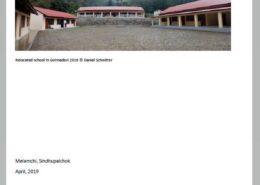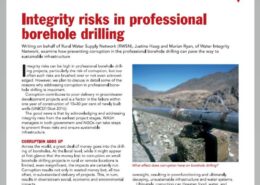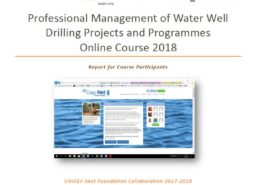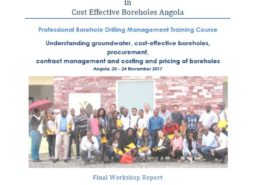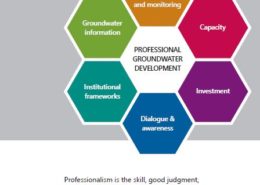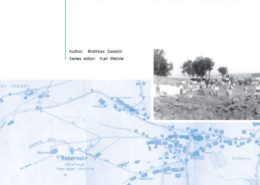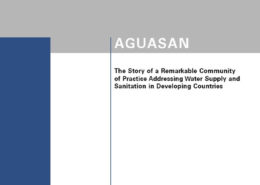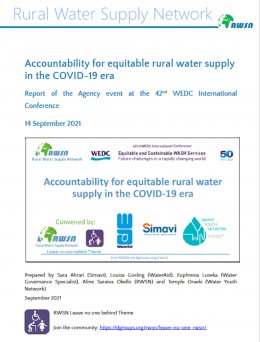
Countries at all income levels experiencing COVID-19 outbreaks, implemented different measures such as lockdowns to contain the spread of the virus. Lockdown imposes practical limitations on the freedom of association and collective action, making it more difficult for rights holders to demand accountability. Challenges include decreased freedom of movement, funding cuts to programmes that support community participation, and poor access to mobile technology and the internet as organising becomes virtual. The gendered digital gap, lowered already limited women’s public participation and access to information. Moreover, increased governmental control over daily life and consolidation of power during the crisis in some cases further constrained civic space.
Knowing how duty bearers performed was also challenged by fast evolving standards and lack of or difficulty in accessing data. Some duty bearers deliberately or unwillingly under the pressure of urgency for quick response were non-transparent. On the other hand, while normal channels of rights claiming were interrupted, there have also been new opportunities to claim the (water) rights.
The aim of the session was to bring together stakeholders from national and international civil society, government and service providers, to share experiences. Key outcomes of a recent RWSN E-discussion and some experiences from the field were used to kick off the discussion, followed by world café style discussions in breakout rooms that enable participants to focus on the issues that are most useful and relevant to them
The 20 latest Blog Posts
- On the water’s edge
- Auf des Wassers Scheide
- International Women’s Day
- WHO Guidelines for drinking-water quality – launch event
- Empowering local communities
- Erfolge der Schweizer Allianz gegen den Hunger
- Bolivia: My first business
- Zusammenarbeit mit Studierenden des MOK der HSG
- Sharing experiences at the World Resources Forum 2023
- RWSN at the World Water Week 2023
- MOK Students and Skat Foundation
- Coaching session to Karim and Frederik’s project
- Skat Foundation celebrates its 20-year anniversary
- The RWSN was present at the IRC All Systems Connect Symposium 2023
- Karim Malik and Frederick Steinmann win the Stockholm Junior Water Prize – Switzerland 2023!
- Dipti Vaghela in Die Wirtschaftsfrau
- Our Annual Report 2022 is out!
- Success Stories: Renewable Energy Training of Trainers
- Menschenrecht auf Wasser – Von St. Gallen bis New York
- Human rights to water – From St. Gallen to New York
The 8 latest Portfolio Entries
Available Pages
- About us
- Afghanistan
- Annual Reports and Finances
- Blue Communities
- Bolivia
- Bolivia women and youth
- Colombia
- Contact us
- Costa Rica
- Data Privacy Policy
- Data Privacy Policy of Skat
- Documenting Knowledge
- DONATE
- Donate to Ukraine’s reconstruction
- Finances
- Funding
- Hands4health
- Home
- HPNET
- Knowledge Brokering
- MBM Tax Grid Page. Do NOT remove this page or edit it except to change template.
- MBM Tax Grid Page. Do NOT remove this page or edit it except to change template.
- Nepal
- Networks
- News
- Nicaragua
- Open Positions
- Organisation
- Our Networks
- Our Projects
- Our projects in Bolivia
- Our Story
- Our Team
- Partnerships
- REACH – improving water security for the poor (Knowledge Broker)
- REACH – improving water security for the poor (Research into Use)
- REAL Water
- Rolling out TAF in Tanzania
- Rural Water Supply Network (RWSN)
- Sharing Knowledge
- Sharing Knowledge
- Short films
- SIRWASH
- SolarChill Development, Testing And Technology Transfer Outreach
- Spenden – Ukraine (in German)
- Synthesising & Documenting Knowledge
- Tanzania
- Tanzania WASH access
- Tanzania-ToT
- Tender – Renewable Energies in Afghanistan: A digital knowledge platform (Phase II)
- Training courses
- Training on Sustainable Waste Management in Central and South America
- Ukraine
- UPGro – Unlocking the Potential of Groundwater for the Poor (Knowledge Broker)
- WASHTech
- Webinars
- What we do
- Workshops
- Zambia
- Publications search
Archives by Subject:
Archives by Month:
- March 2024
- February 2024
- December 2023
- October 2023
- September 2023
- August 2023
- July 2023
- June 2023
- May 2023
- April 2023
- February 2023
- January 2023
- November 2022
- October 2022
- September 2022
- August 2022
- July 2022
- June 2022
- May 2022
- March 2022
- February 2022
- January 2022
- December 2021
- November 2021
- October 2021
- September 2021
- August 2021
- July 2021
- August 2020
- May 2018
- April 2018
- January 2018
- July 2017
- June 2017
- March 2017
- January 2017

